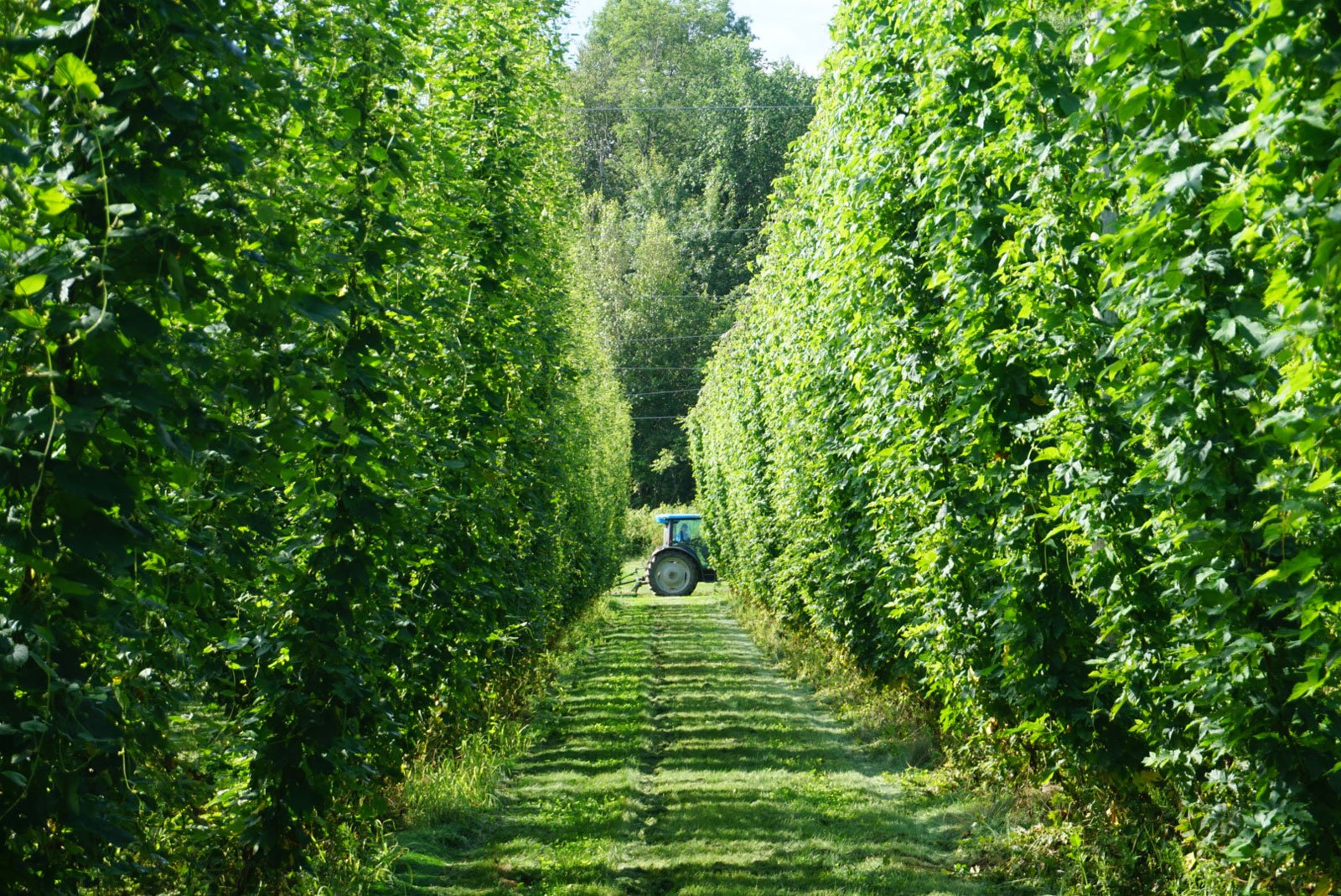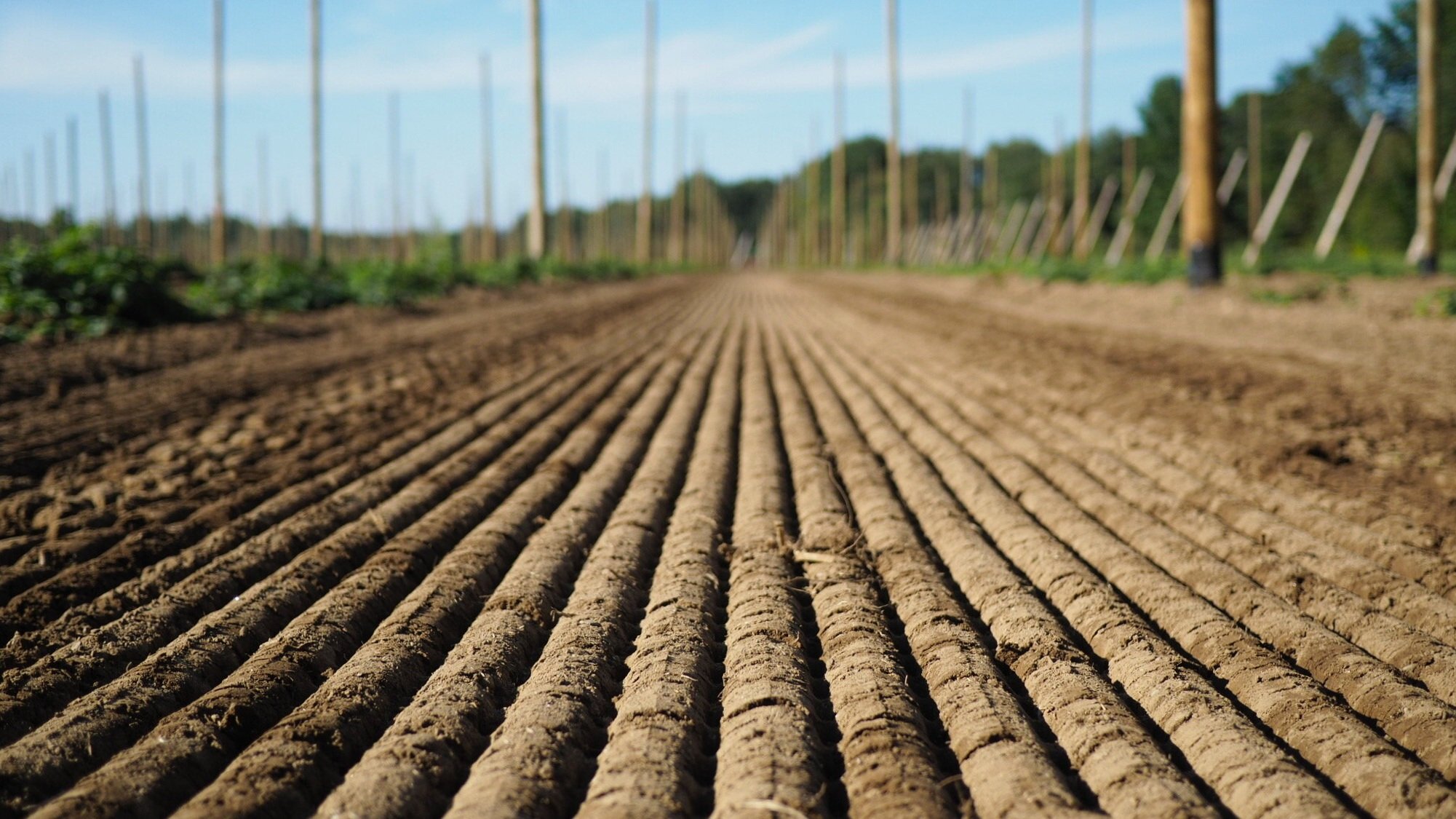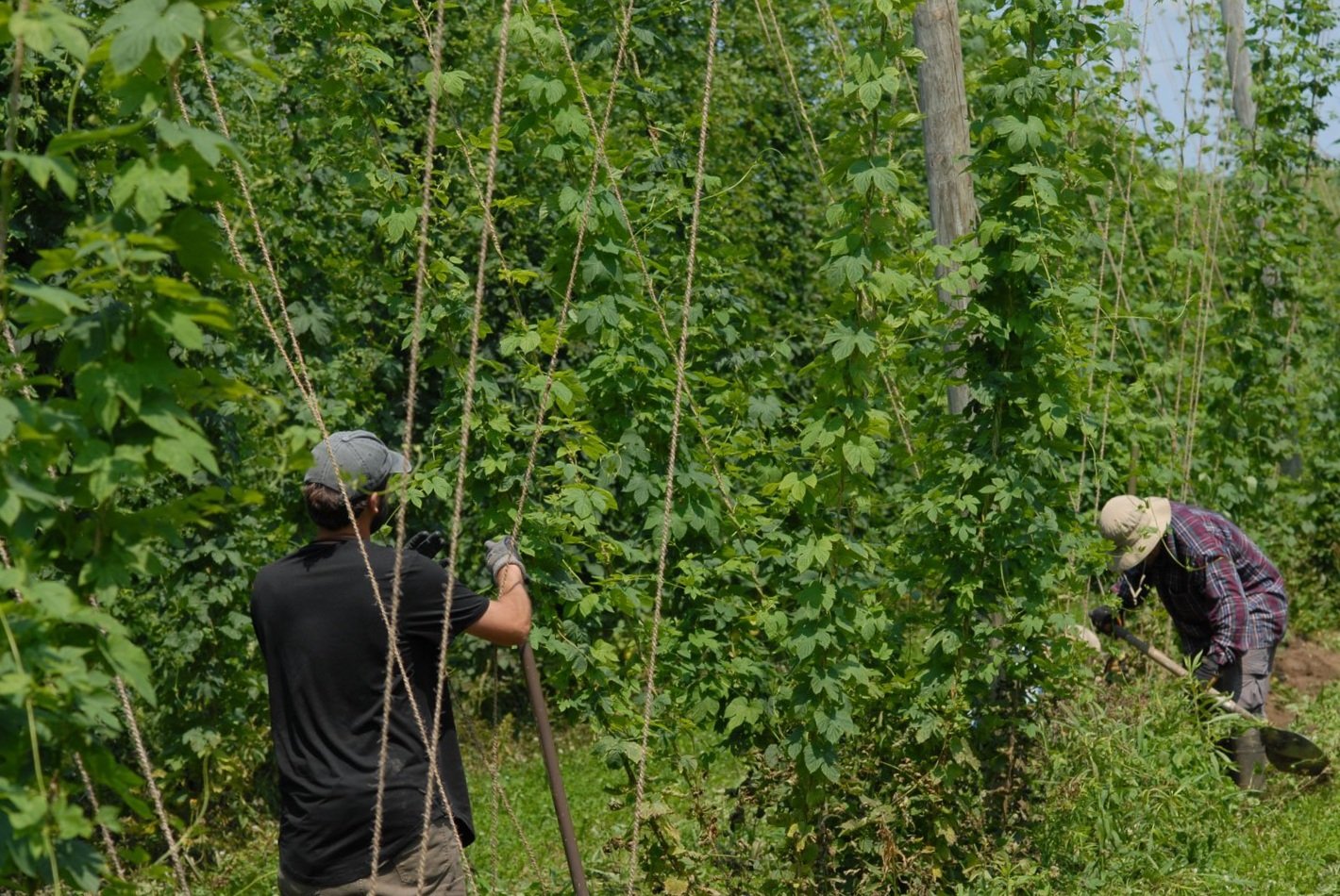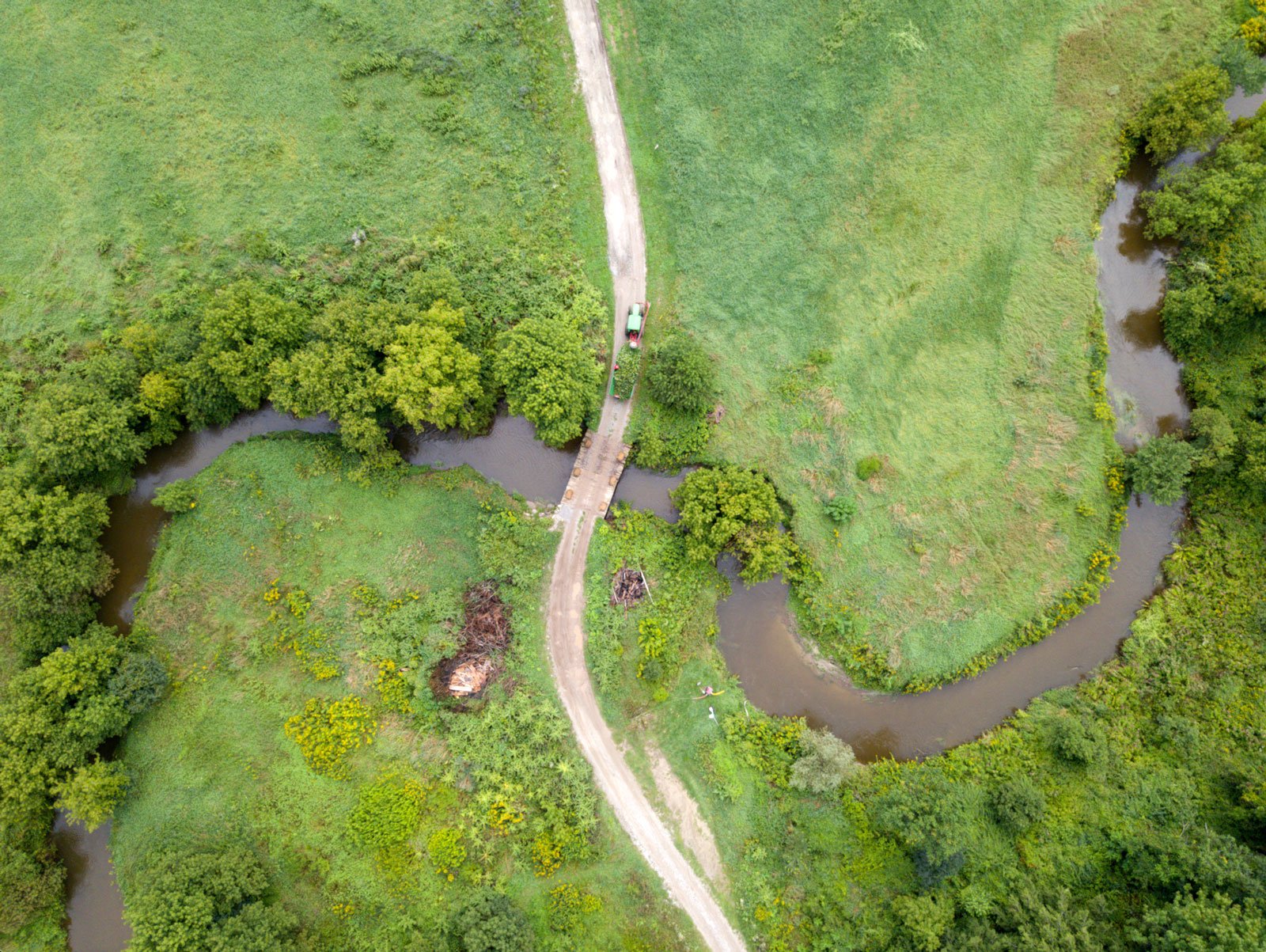
Farming Practices
Experts in Farming Hops
Nestled in Vermont’s Champlain Valley, our land was once home to a working dairy farm. We’ve repurposed the existing structures to suit our needs as growers and processors of craft hops, while preserving the distinctive character of the Vermont farmland.

Healthy soil makes for healthy hops
Our hops are grown in loamy sand that sits on terraces above the valley floor. These well-drained, flat, rock-free terraces are unique to eastern Addison County. They’re a (somewhat) hidden treasure in Vermont’s mountainous landscape, and ideal for growing hops.
As the physical and practical foundation of our business, we put immense effort into maintaining the structural and biological health of these beautiful soils. Without this land, we wouldn’t be able to offer high-quality hops at the commercial scale that today’s craft brewers demand.

Committed to sustainable farming
We believe that it is our responsibility to farm in a way that nurtures our hops, the people who grow them, the beer lovers that enjoy them, and the landscape that gives them life.
We use smart farming methods to produce top-quality hops.
-
We use disease-tolerant plant varieties that are bred to be more robust.
-
Our well-drained soil allows for a drier microclimate in the hop yard.
-
Extra-wide plant spacing allows for improved airflow and faster drying after rainfall.
-
Drip fertigation (irrigation + fertilization) reduces runoff and pollution by applying water and nutrients directly to the plant roots.
We feed at low volumes throughout the season, rather than in a few massive doses, to prevent the runoff common with corn and other industrial crops.
-
Nearly all areas of the farm are planted with cover crops, which continuously add organic matter to the soil and control run off.
The University of Vermont (UVM) Agr. Extension Service has used our farm to conduct research on cover cropping.
In 2022 we removed the grass in the rows between our hops and planted purple turnips and wheat in its place. These crops don’t hold on to as much moisture as grass, which helps combat downy mildew, and add more nutrients to the soil.
-
Our Integrated Pest Management (IPM) strategies use all the tools at our disposal to control potential problems rather than relying only on chemical methods. Beneficial insects help keep pests in check. We perform regular pest surveys to identify issues rather than spraying as a preventative measure. All the controls we use are approved in Europe, which has much stricter agriculture regulations than the US.

Honoring our land
We recognize that we farm on historically Abenaki land and honor their legacy of caring for this land. Lewis Creek, which the Abenaki called Sungahneetook (River of Fish Weirs), runs through our property and is able to provide all of the water needed to irrigate our crop.
Since the creek empties into Lake Champlain, it is especially important that we manage what goes into it as much as what come out. In 2018, we worked with the Vermont Land Trust to conserve 40 acres of low lying land along the nearly mile long stretch of creek that runs through our property. In 2022, the organization planted 1400 trees along the creek as a riparian buffer to aid in conservation. These measure will help sustain Lewis Creek’s use for wildlife and generations to come and ensures that the land will not be redeveloped or infringed upon down the road.
